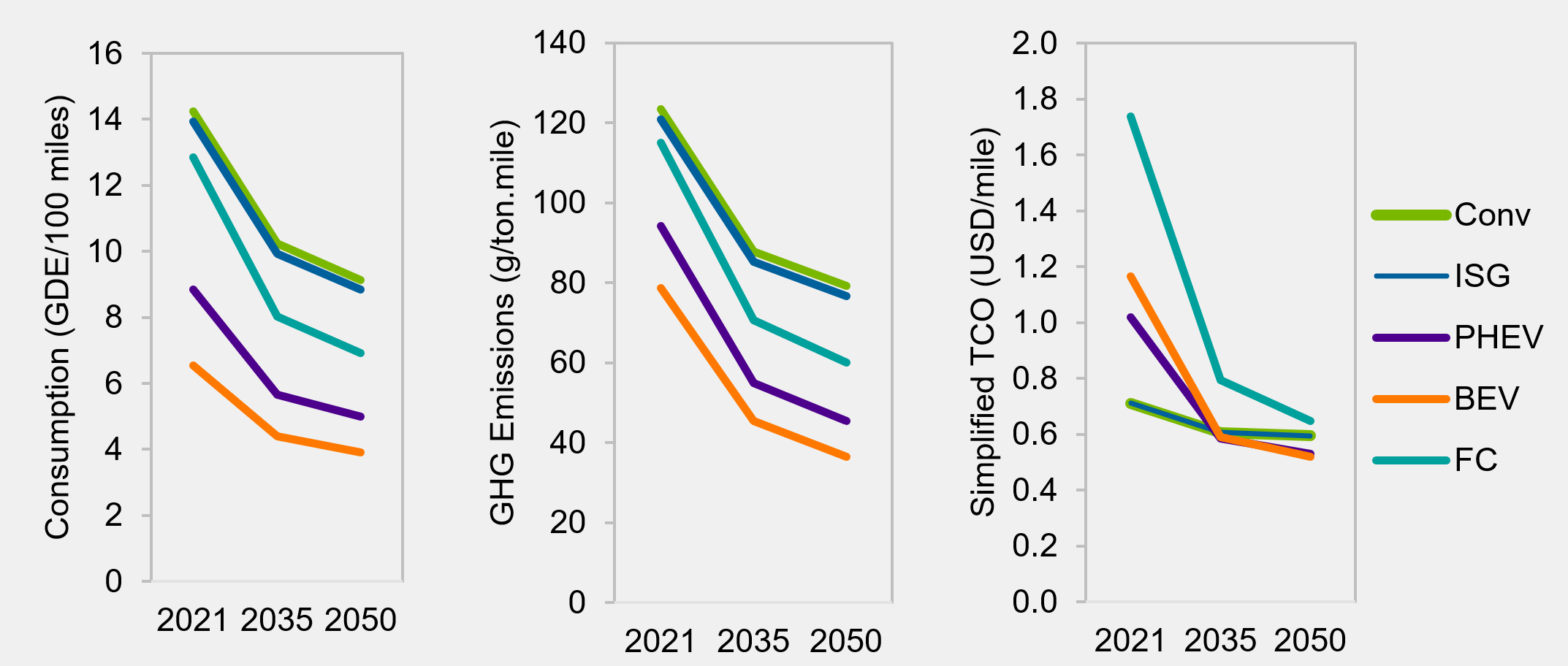Long Haul Shipping Costs
Published: 2024 February
Advanced Research Accelerates Long-Haul Truck Shipping Cost Reduction
Enhancing the efficiency of the freight system, especially for long-haul operations, is crucial for overall transportation shipping cost reduction. Choosing the most viable and efficient powertrain option for long-haul trucks involves complex analysis and evaluation.
Argonne researchers used Autonomie vehicle system simulation models to assess the impact of various Class 8 truck powertrains (conventional, mild HEV, PHEV, BEV, and FCEV) on energy consumption, well-to-wheel GHG emissions, and total cost of ownership in the short, medium, and long terms. This assessment utilized 12-month real-world freight operation data collected in California in 2021, including details on truck speed, road slope, and payload. The future truck models in the study aim to reflect ambitious technological advancements based on research and development targets supported by the U.S. DOE Vehicle Technologies Office and the Hydrogen and Fuel Cell Technologies Office.
The analysis of current technology indicates that BEV trucks show the most significant emissions reduction, with a 36% decrease from the conventional diesel truck benchmark. However, despite technological progress and cost reductions, under the scenario considered, long-haul BEV trucks are not expected to achieve total cost of ownership (TCO) parity with diesel trucks until 2035.
By 2035, BEV long haul trucks are estimated to provide a reduction of 57% in energy consumption and 49% in GHG emissions, primarily due to advanced vehicle technologies. The implementation of incentives, such as the Inflation Reduction Act, has the potential to accelerate this timeline by 5 years.
Looking ahead to 2050, BEVs are expected to maintain a consistent cost advantage, with a 13% lower TCO and an estimated 54% reduction in well-to-wheel emissions. Fuel Cell trucks also show promise, narrowing the gap to achieve cost parity with diesel trucks while reducing well-to-wheel emissions by 25%.
The study reinforces the potential of long haul truck shipping cost reduction. Due to the significant uncertainties related to technology evolution as well as energy cost, all powertrain and fuel options should still be considered. In parallel, incentives and policies are critical to accelerate market adoption.

Reference:
Mansour, C., Sahin, O., Zuniga-Garcia, N., Vijayagopal, R., & Borhan, H. (2023). Assessment of Advanced Long-Haul Truck Powertrains: Comparative Study of Consumption, Emissions, and Cost with Diesel Trucks. In Proceedings of the FISITA 2023 World Congress, September 12-15, Barcelona, Spain. Paper number FWC2023-PPE-026.